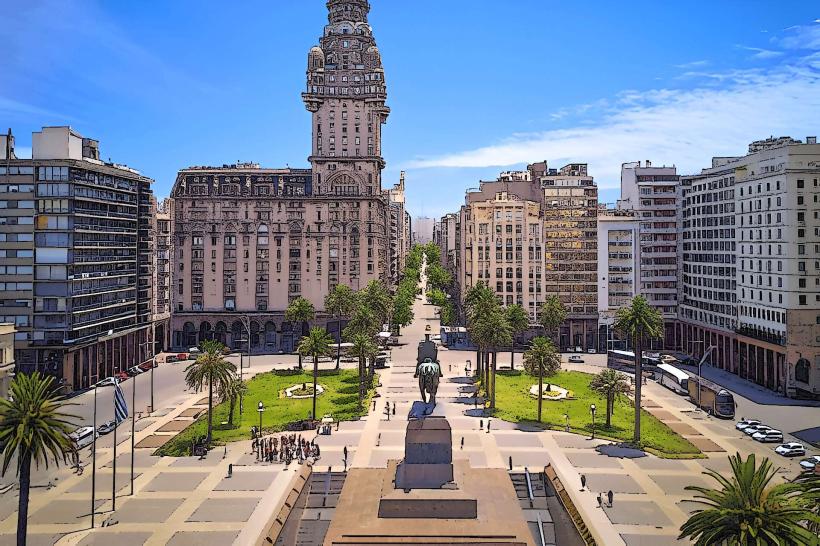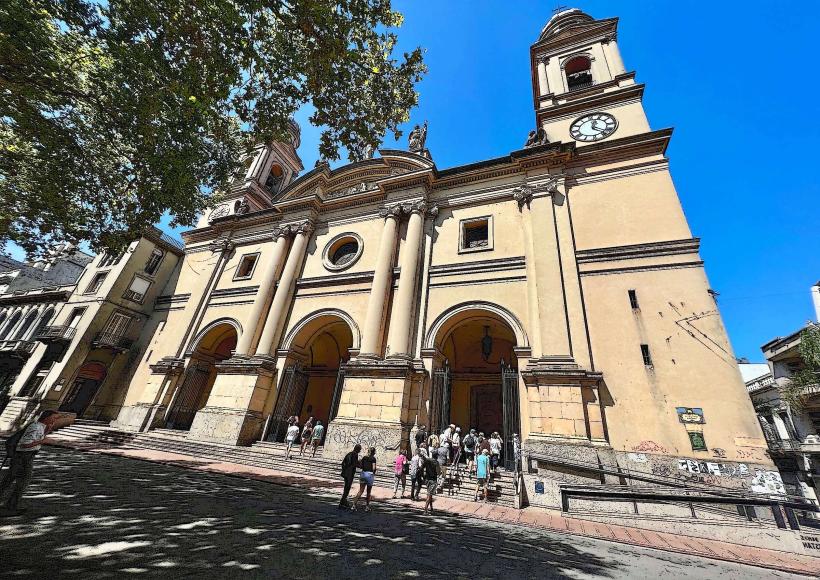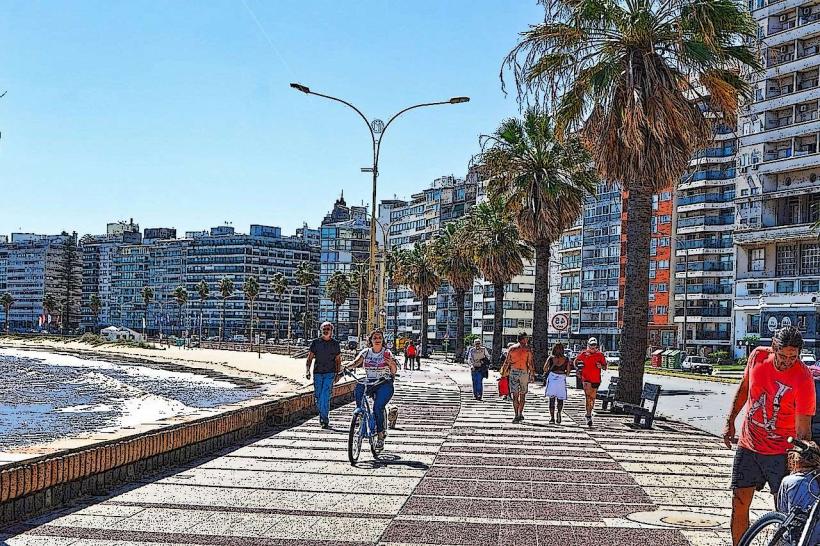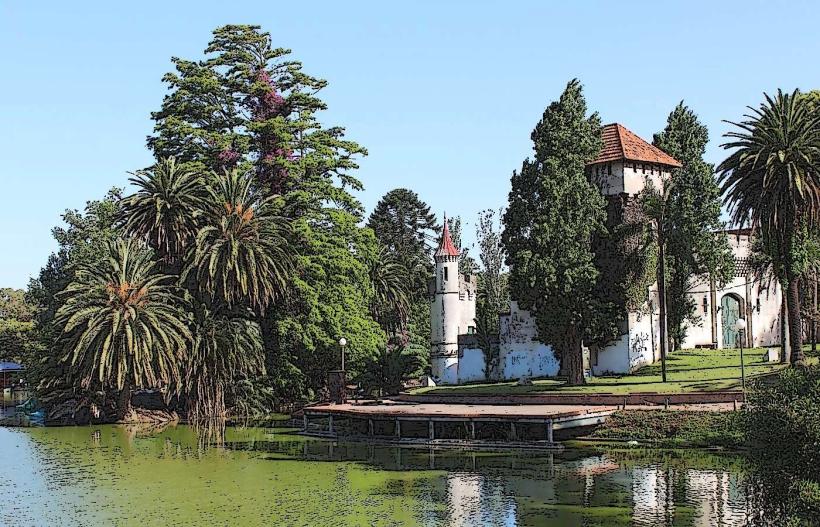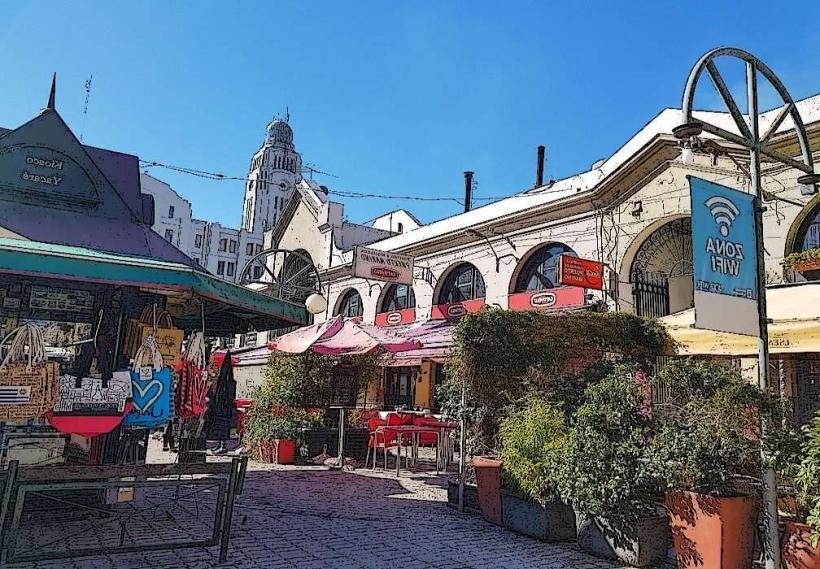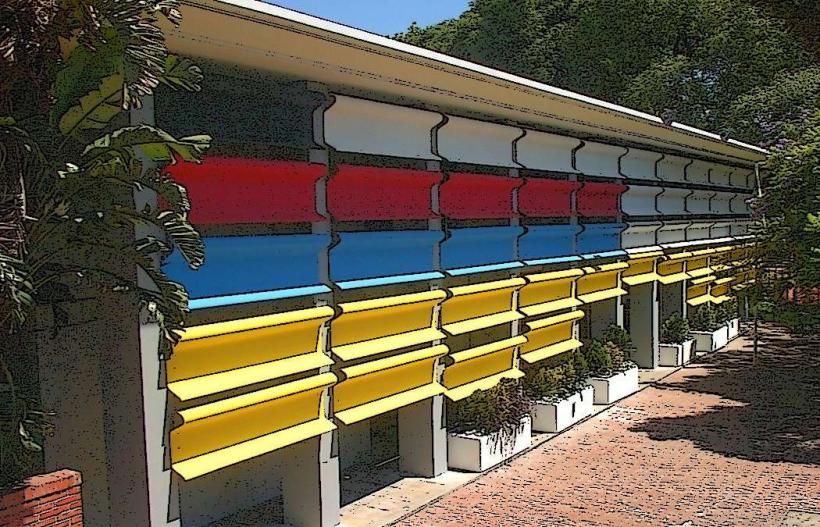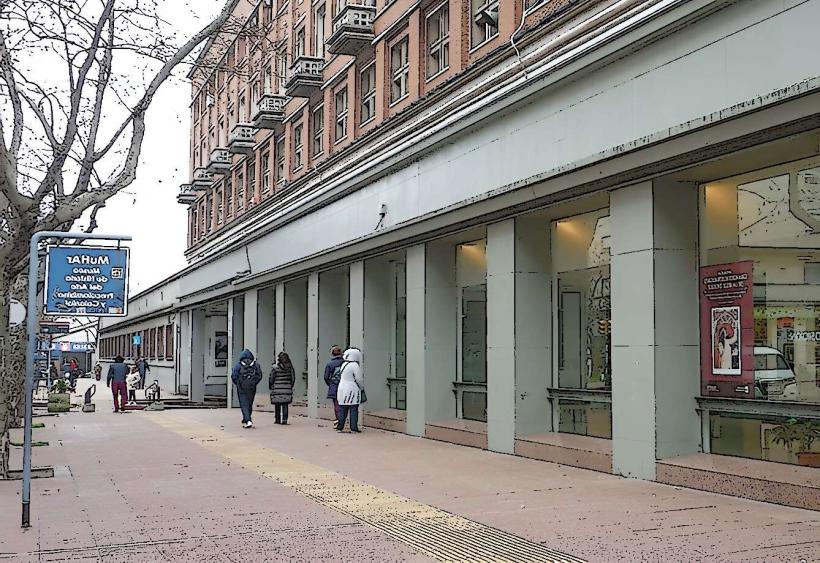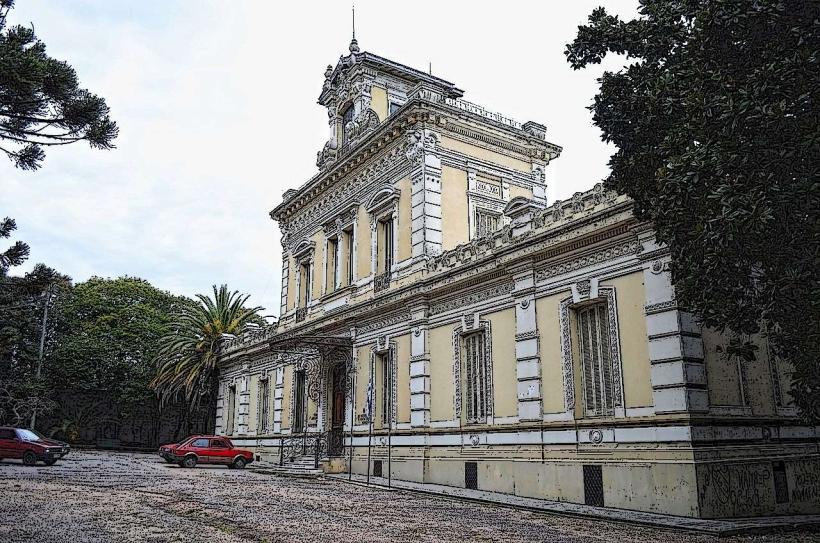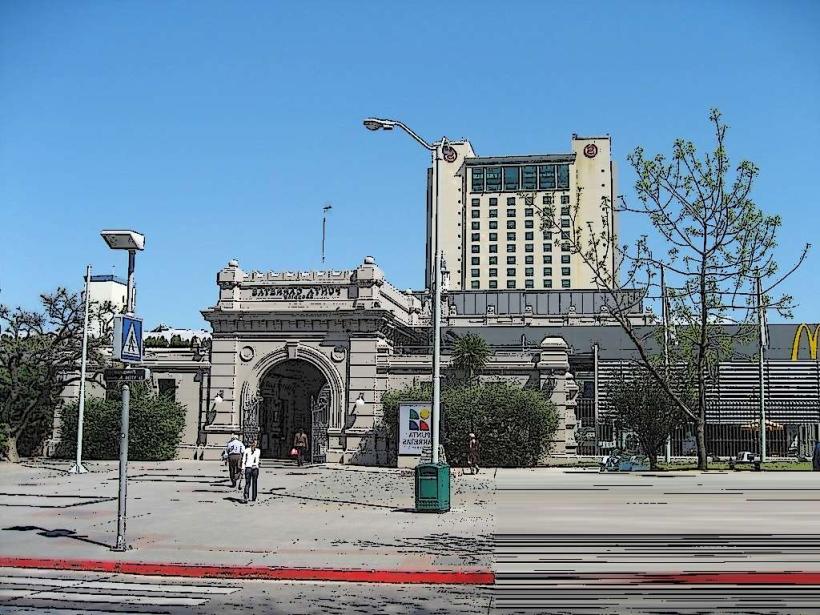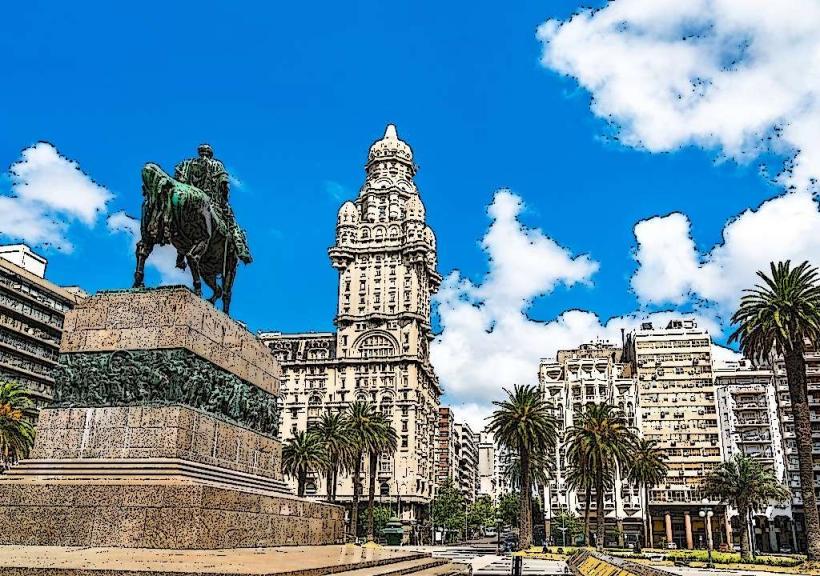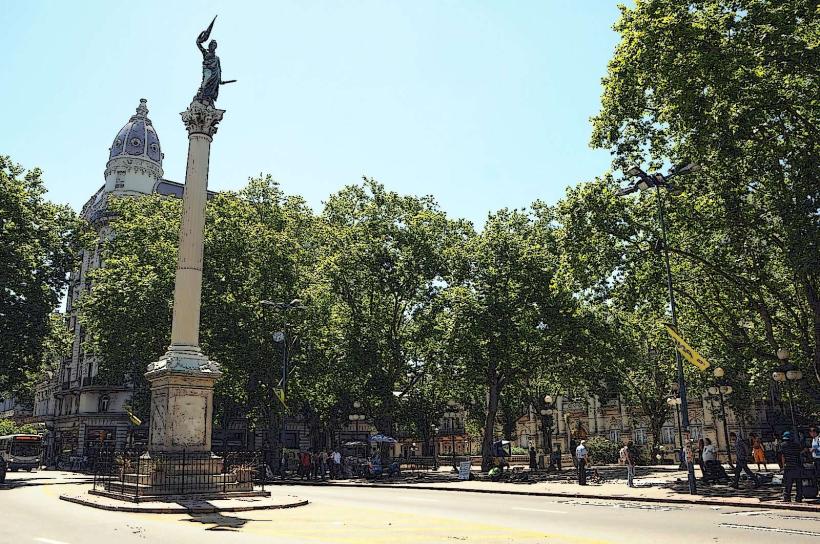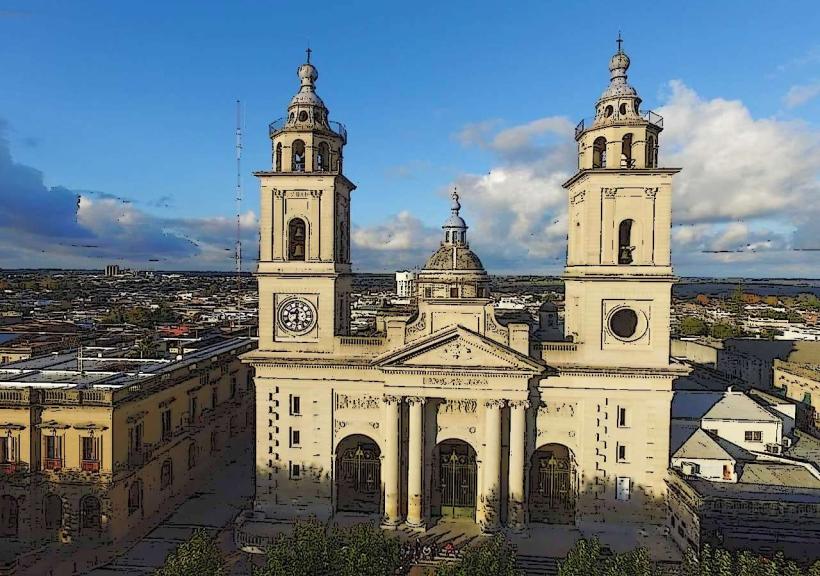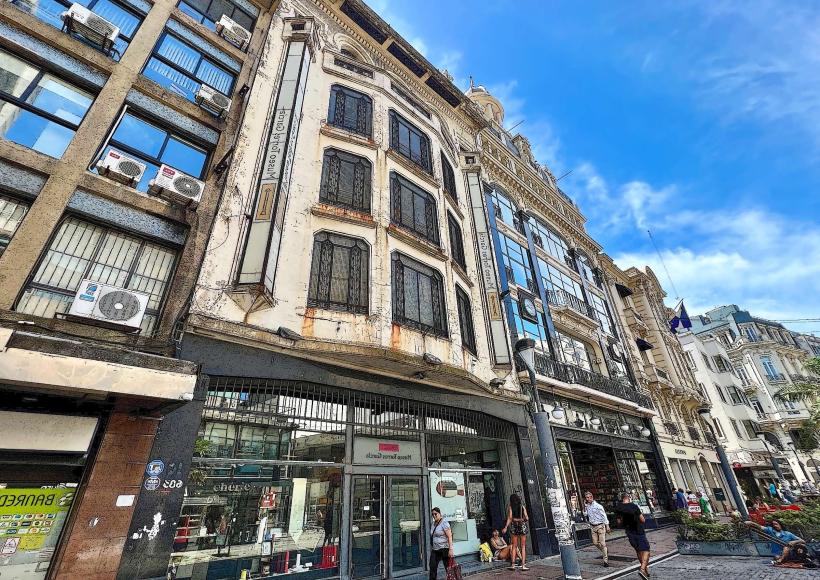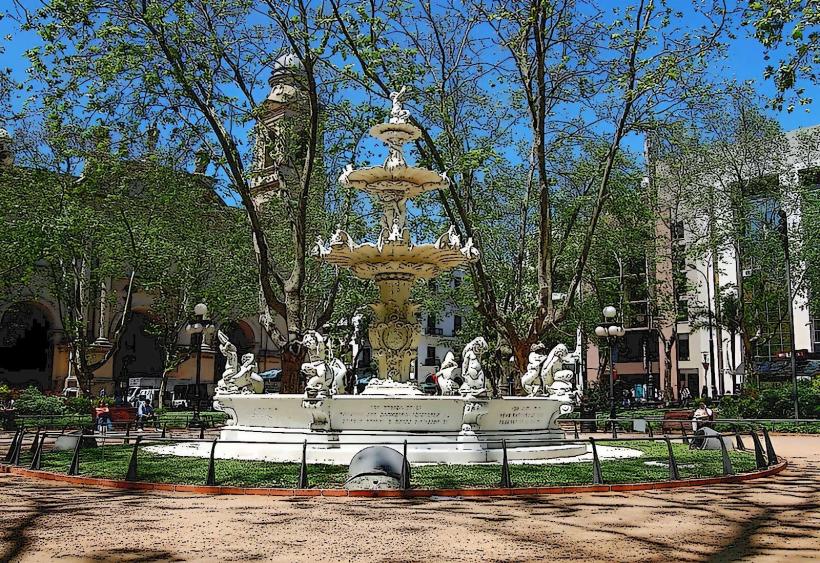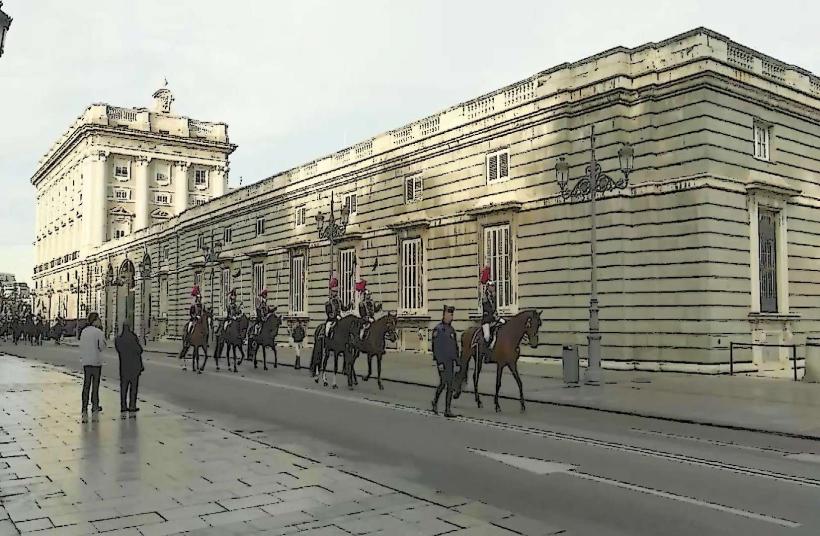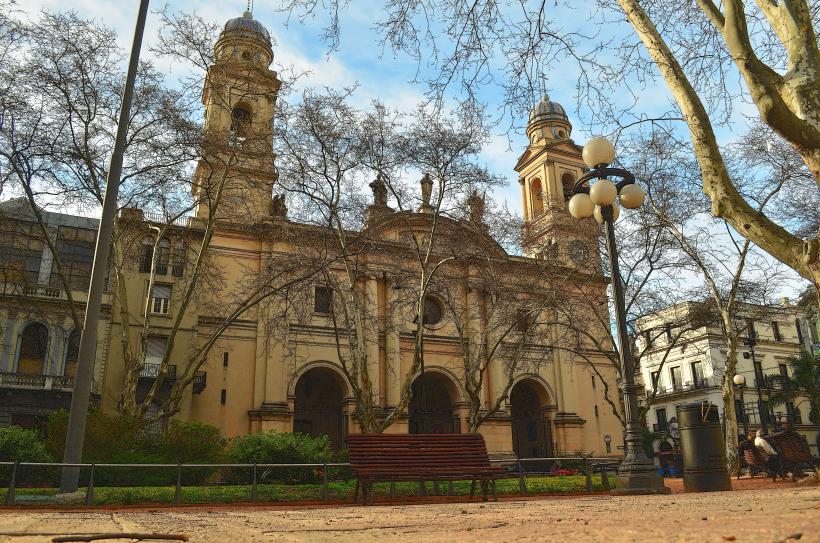Information
Landmark: Teatro SolísCity: Montevideo
Country: Uruguay
Continent: South America
Teatro Solís, Montevideo, Uruguay, South America
Teatro Solís – A Historic and Cultural Icon of Montevideo
Teatro Solís, located in the heart of Montevideo, Uruguay, is one of the oldest and most renowned theaters in Latin America. Its long history, architectural beauty, and cultural significance make it a must-visit attraction for anyone exploring the city. As a central part of Montevideo’s artistic and cultural landscape, Teatro Solís offers a rich experience that showcases Uruguay’s love for music, drama, and performance.
1. History and Foundation
- Teatro Solís was founded in 1856, making it one of the oldest theaters in South America. The theater was built during a time of cultural growth in Montevideo, as the city sought to develop its identity as a cultural center in the region.
- The theater was originally conceived by Francesco Cavagnari, an Italian architect, and is a prime example of neoclassical architecture. Its name, “Solís,” is in honor of the renowned José Solís, a famous composer and writer of the era.
- It was a project supported by Uruguayan elites who sought to elevate the nation’s cultural scene by offering a venue for opera, theater, and classical music. Over the years, the theater has hosted performances by world-class artists, and it remains a cultural treasure for Uruguayans.
2. Architectural Features
Neoclassical Design
- Teatro Solís is a prime example of neoclassical architecture. The building's elegant facade features grand columns, and the interior is opulent, showcasing the taste of the time.
- The theater’s main hall is known for its stunning acoustics and grand design, with a beautiful stage, balconies, and an ornate ceiling adorned with intricate frescoes and gold leaf.
- The foyer and the lobby are equally impressive, with marble floors, luxurious chandeliers, and stunning decorative elements that transport visitors back to the 19th century.
Renovations
- Over the years, Teatro Solís has undergone several renovations to ensure its preservation while modernizing it for contemporary performances. The most recent major renovation was completed in 2004, restoring many of the original features and enhancing the theater’s functionality for modern performances.
3. Cultural Significance
A Center of Performing Arts
- Teatro Solís is a cultural landmark and continues to be an essential space for the performing arts in Montevideo and Uruguay. It hosts a wide range of performances, including operas, ballet, theater, classical music concerts, and modern productions.
- It is one of the main venues for international performers visiting Uruguay and has seen a variety of global artists grace its stage over the years.
National and International Influence
- The theater has played a central role in the development of Uruguay's national identity, as it has been home to the first performances of many Uruguayan composers, writers, and artists.
- Teatro Solís has also established itself as a major venue in the international arts scene, attracting artists and audiences from all over the world. It has hosted prestigious orchestras, singers, and dancers from various parts of the globe.
4. Guided Tours and Visitor Experience
Teatro Solís Tours
- Visitors to Teatro Solís can take part in guided tours to explore the theater’s rich history, architecture, and ongoing artistic contributions. The tours provide insights into the theater’s construction, the performances that have taken place there, and the famous artists who have graced its stage.
- During the tours, visitors are taken to the main hall, backstage, and other parts of the theater that are not typically accessible during performances. It offers an in-depth look into the life of a working theater and the backstage activities involved in preparing for a performance.
Cultural Events
- Visitors can also enjoy live performances at the theater, which regularly hosts events such as operatic performances, plays, concerts, and dance recitals. For those interested in experiencing Uruguayan culture, Teatro Solís offers an excellent opportunity to see local talent alongside international stars.
5. Important Performances and Artists
- Teatro Solís has hosted countless notable performances since its opening, featuring artists such as Plácido Domingo, Tito Gobbi, and Renée Fleming. It has also been home to important national productions, including works by Uruguayan composers like Eduardo Fabini and Juan José Mosalini.
- The theater has also hosted performances by international ballet companies, including The Bolshoi Ballet, The Royal Ballet, and The Paris Opera Ballet.
6. Teatro Solís Today
- Today, Teatro Solís continues to be an essential part of Montevideo's cultural fabric, attracting thousands of visitors annually. It is a place where both traditional performances and modern works are celebrated, and its importance as a cultural symbol remains strong.
- The theater is also home to various cultural programs aimed at promoting the arts and encouraging new generations of artists. It hosts a number of workshops, exhibitions, and educational events to engage with the community and foster creativity.
7. Conclusion
Teatro Solís is not only an architectural gem of Montevideo but also a symbol of the city’s artistic heritage. With its rich history, beautiful design, and ongoing influence on Uruguay’s cultural scene, it remains a must-visit destination for those interested in the performing arts, Uruguayan culture, and historic architecture. Whether you're attending a performance or taking a guided tour, a visit to Teatro Solís offers a glimpse into the heart of Montevideo’s cultural life.

